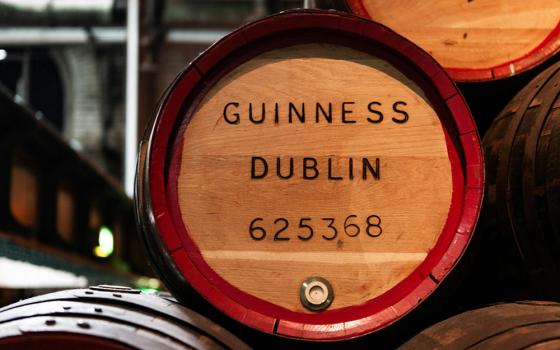NCR ran a story last week about an ecumenical group in Ireland that sought to have an intercommunion Eucharist service to celebrate the organization's 50th anniversary. But Dermot Clifford, the archbishop of the local Catholic diocese, Cashel and Emly, told the Glenstal Ecumenical Conference, "I do not have the authority to grant the request you made."
So Fr. Mark Patrick Hederman*, the abbot of the Glenstal Abbey, where the group meets, approached Ireland's apostolic nuncio, but the nuncio said he agreed with the bishop's blunt response. Next, the abbot appealed to the secretary of the Congregation for Divine Worship and the Discipline of the Sacraments in Rome, who also concurred with the bishop but recommended the Glenstal conference appeal again to the Cashel and Emly bishop. This the abbot did, only to get the same answer as before.
As I read this story, my question was: Why didn't the Glendal folks go ahead and have their intercommunion service without all this appealing and reappealing to the hierarchy? After all, we are told, this determined ecumenical body, which consists of Roman Catholics, Church of Ireland members, Methodists and Presbyterians, had, in fact, celebrated an intercommunion service once before in 1985 with the blessing of the Cashel and Emly bishop at that time. He had given permission for a shared Eucharist based on a text of belief agreed on by all the participants. So it seemed to me there was something like a precedent here for this long-standing, responsible organization to proceed.
But the story revealed that the abbot intentionally got the hierarchy involved because the organizers "wanted to rattle the bars and test the boundaries and at least find out what the official position was about Eucharistic-sharing."
They found out.
On the surface, the conference members reacted with a stiff upper lip. Abbot Hederman declined to criticize the hierarchy's blunt reactions. He even praised Clifford for being "very good friend to this community for the 25 years he has been Archbishop of our diocese." However, there was evidence that not everyone was at ease. Following a "lengthy debate," the Glenstal community decided the yearly conference will not be held in 2014 so members could reflect on the conference's relevance and role in Ireland's multicultural and increasingly secularized society. Some worried a year off could lead to the disintegration of the Glenstal conference itself and its half-century of ecumenical effort. In the end, this story raises for me three questions, the first of which Hederman asked after the discussion concluded: Is the Roman Catholic church really serious about church unity?
How long is it going to take for large numbers of small interfaith communities to follow the movement of the Spirit and act on their own initiative in good conscience?
When will theologians (and some bishops, perhaps) speak up about the right of church members to state their dissent and disagreement with certain church restrictions and teachings and even support instances of Holy Disobedience when they see them?
*An earlier version of this blog incorrectly spelled Hederman's name.



